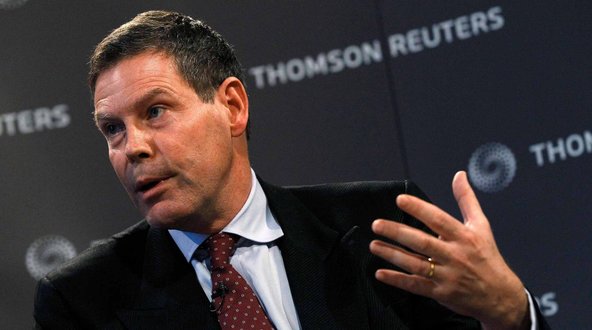 Stefan Wermuth/ReutersHector Sants, former chief of the Financial Services Authority.
Stefan Wermuth/ReutersHector Sants, former chief of the Financial Services Authority.
LONDON – Barclays appointed Hector Sants, a former chief of Britain’s Financial Services Authority, as head of compliance on Wednesday, as part of an effort to revamp its image in the wake of a rate-rigging scandal.
In June, Barclays agreed to a $450 million settlement with American and British authorities over charges that some of its traders reported false interest rates for financial gain. The case led to the resignation of several top executives, including Robert E. Diamond Jr, its chief.
The scandal also prompted questions about the role of the Financial Services Authority, the British regulator, in policing big banks. In 2008, a Barclays employee told the authority that the bank was lowering its submissions for the London interbank offered rate, or Libor, although Barclays never specifically said the activities amounted to manipulation.
Revolving Door
View all posts
Since the summer, Barclays has moved to rethink its compliance and risk-taking activities. It has begun a review of its risky trading operations, and is expected to announce an overhaul of many of its business units in time for its next earnings statement in February.
With the appointment of Mr. Sants, a former UBS investment banker, Barclays is hoping to benefit from his experience working with many of the world’s financial regulators. Mr. Sants left the Financial Services Authority in June.
As head of compliance and government and regulatory relations, Mr. Sants will oversee compliance across all of the bank’s operations, and report directly to the chief executive, Antony P. Jenkins. He will start at the beginning of 2013.
Libor Explained
“Relationships with our regulators and governments around the world are obviously also of critical importance to us,” Mr. Jenkins said in a statement on Wednesday. “We must apply a renewed leadership focus on these to make them as constructive and productive as possible.”
The Financial Services Authority has faced harsh criticism from British politicians, who said it did not do enough to monitor risky trading activity in London’s financial services sector.
In tense testimony before Parliament this year, Adair Turner, the former chairman of the authority, was questioned about the culture at Barclays that led to the rate-rigging scandal.
In April, Mr. Turner had written to Marcus Agius, then the chairman of Barclay, about what the regulator perceived as overly aggressive practices by the bank. The concerns focused on efforts to avoid paying about $770 million in corporate taxes and some of the bank’s accounting methods.
“Barclays often seems to be seeking to gain advantage through the use of complex structures, or through regulatory approaches which are at the aggressive end of interpretation of the relevant rules and regulations,” Mr. Turner wrote, according to documents released by Parliament.
Mr. Sants did raise early concerns about the culture at Barclays. After Mr. Diamond was appointed as the bank’s chief executive, the authority warned the Barclays board that he had “not reached the level of openness, transparency and willingness to air issues” with regulators,” according to an e-mail. “I’d like to record that in that conversation, I made clear that our concerns about Barclays’s culture were not some generic observation but specific to Barclays,” Mr. Sants wrote in a 2012 letter to Parliament.
After the Barclays case, the Financial Services Authority conducted a three-month review of the Libor setting process, which has led to a major overhaul of the rate. It acknowledged that the authorities should have stepped in sooner to fix problems with Libor. It also laid out plans to make attempts to alter the rate a criminal offense, and to implement a new auditing system to ensure traders could not unfairly profit from small changes in the rate.
The Financial Services Authority will soon be disbanded, and many of its regulatory powers are to be returned to the Bank of England, the country’s central bank.
This post has been revised to reflect the following correction:
Correction: December 12, 2012
An earlier version of this post misstated Hector Sants’s new job title. He will be head of compliance and government and regulatory relations, not regulatory regulations.
Article source: http://dealbook.nytimes.com/2012/12/12/barclays-appoints-former-british-regulator-as-head-of-compliance/?partner=rss&emc=rss

Speak Your Mind
You must be logged in to post a comment.